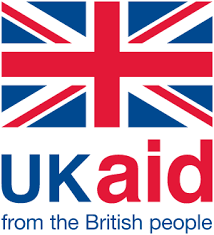Location
The Foreign, Commonwealth and Development Office (FCDO) pursuseds national interests and project the UK as a force for good in the world. We promote the interests of British citizens, safeguard the UK’s security, defend our values, reduce poverty and tackle global challenges with our international partners.
Members:
Resources
Displaying 171 - 175 of 228Renforcement des infrastructures d'approvisionnement en eau et d'assainissement de la ville secondaire de Khas
Renforcement des infrastructures d'approvisionnement en eau et d'assainissement de la ville secondaire de Khas
KV.RAH.LAIT/The World Bank, Donor Funded Staffing Program, DFSP
General
The primary objective of the World Bank’s Donor Funded Staffing Program (DFSP) is to increase Finland’s influence in the World Bank by promoting the placement of Finnish experts in the World Bank. In addition to Finland, the DFSP is funded by a total of 18 countries. The financing agreement between Finland and the World Bank was signed 30 June 2004. Finland has funded the programme by approximately EUR 12 million. In 2004-2021, the World Bank employed 24 Finnish mid-career level experts (12 women and 12 men). Finnish experts have worked in the gender, human rights, forest, land use, environment, disability and education sectors. The DFSP is an effective tool for exerting influence, making it possible to incorporate Finnish expertise into the World Bank. The World Bank is a highly valued organization and global development policy knowledge hub, and the ministry and the relevant sector can make use of the work experience and contacts provided through DFSP placements in the World Bank. The mid-career level expert will initially work for two years at the World Bank, which can be extended by one year if the World Bank commits to paying for the next two years. The term of the expert will thus be 2-5 years in total. According to feedback from the World Bank, Finnish experts are highly esteemed, which demonstrates that many of them have been transferred to the World Bank’s payroll.
Global Environment Facility (GEF); 8th Replenishment (2022 support)
General
The Global Environment Facility was established in October 1991 as a pilot program in the World Bank to assist in the protection of the global environment. In 1994, at the Rio Earth Summit, the GEF was restructured and moved out of the World Bank system to become a permanent, separate institution. As part of the restructuring, the GEF was entrusted to become the financial mechanism for both the UN Convention on Biological Diversity and the UN Framework Convention on Climate Change. The GEF serves as a "financial mechanism" to five conventions: Convention on Biological Diversity (CBD), United Nations Framework Convention on Climate Change (UNFCCC), Stockholm Convention on Persistent Organic Pollutants (POPs), UN Convention to Combat Desertification (UNCCD), and Minamata Convention on Mercury. The GEF strives to achieve global environmental benefits by supporting developing countries in their efforts. GEF has organized its work around five focal areas – biodiversity loss, chemicals and waste, climate change, international waters, and land degradation – and take an integrated approach to support more sustainable food systems, forest management, and cities. The program architecture of GEF's eighth additional financing period is based on the "healthy planet, healthy people" thinking. At the same time, the number of integrated programs was increased to eleven from four in the previous additional funding period. The GEF is a network organization. It is composed of independent secretariat and evaluation office, the World Bank acts as a trustee channelling project support to implementing entities such as to the United Nations Environment Program (UNEP). Finland has supported the GEF from the very beginning. The support to the GEF was 26.9 million euros during the seventh cycle (2018-2022) and 48 million euros during this round.


